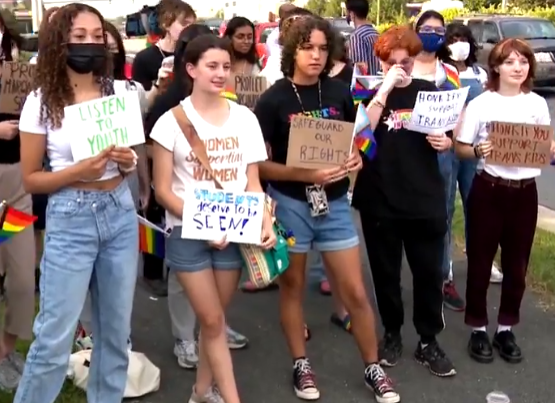LGBTQIA high school students protest for co-ed sex education classes

Today’s parents are no strangers to the ongoing gender identity culture wars in society and, in particular, public schools. Fairfax County Public Schools saw some of its high school students protest in favor of combining genders in the school system’s sex education courses.
ABC News reported that LGBTQIA+ students and the advocacy group Pride Liberation Project are clamoring for the combination of genders for the Family Life Education classes, which is the name of the sex education classes in Fairfax County.
Other nearby school districts combine male and female students, such as Virginia districts in Arlington County and Alexandria City and Maryland district Prince George’s County.
The courses separated male and female students from the fourth to the eighth grade. But a recent recommendation by the Family Life Education Curriculum Advisory Committee suggested mixing genders in these courses.
ABC News quoted several activists in favor of combining genders in sex education classes.
One was a student activist named Rivka Vizcardo-Lichter, who told ABC’s D.C. affiliate WJLA that combining genders is a “step forward” because “queer people need to learn about their sexual health in a safe way.” Vizcardo-Lichter claimed, “We’re not asking anyone to take on any crazy reforms.” The activist said that the Supreme Court’s decision in the Dobbs case, which overturned the Roe v. Wade abortion case, spurred the protest.
Interestingly enough, the president of the Transgender Education Association named Willow Woycke told the Fairfax County School Board in May 2022 that combining genders in sex education classes would not be a problem. “The main criticism is that it makes students uncomfortable. We have to ask ourselves, ‘Why are students uncomfortable learning about their bodies?’” Woycke said, “People who are afraid of FLE [family life education] have the option to opt their children out.”
One county resident told WJLA that it was wrong to combine genders. “Some of the discussions are about activities I think almost are sexualizing our children to some extent, up to the point of almost grooming them,” the resident said, “I think this is not a good idea to have them both all in the same class, boys and girls.”
The school board did not discuss a timeline for its decision on combining genders in sex education courses, with a spokeswoman saying that the board “may choose to review this recommendation at some point this coming school year.”
The gender identity culture wars are blurring the lines between long-established and long-accepted genders of male and female. Many parents oppose combining genders for sex education classes because male and female students have different biology and therefore would require tailored teaching to address their biological developments.
But the LGBTQIA+ movement treats gender as a social construct that is fluid and negotiable, yet the movement has run into stiff opposition from parents of all political ideologies due to a variety of legitimate concerns.




